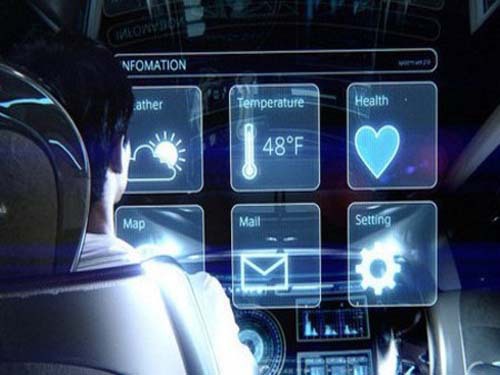In March of this year, Foxconn announced that it has signed a cooperation framework agreement with Tencent and Harmony Auto to launch cooperation on “Internet+Smart Electric Vehicles†in Zhengzhou City, Henan Province. Among them, Foxconn will be responsible for the integrated design and manufacturing technology of smart electric vehicles. Custom Aluminuim Coil,Decoration Coil,Aluminuim Decoration Coil,Aluminuim Clad Laminate Coil Jiangyin Xinren Aluminium Technology Co.,Ltd , https://www.jyxinrenaluminium.com
Some analysts believe that Foxconn's modular shipment model of components may lead to changes in the manufacturing process and production process of electric vehicles, thereby reducing the cost of electric vehicles. Can Foxconn, which competes with rivals in the 3C field with its strong cost control capability, copy its manufacturing experience to the automotive industry?
Early emergence of the electric vehicle industry chain
In 2005, Foxconn entered the auto industry through mergers and acquisitions that provided automotive wire harnesses to Ford and Yulon Automotive and other manufacturers. After that, Foxconn chose to use control screens and lithium batteries as the entry point. In 2010, Foxconn took over Tesla's order and became the supplier of the center's touch screen panels, connectors and covers for the luxury electric vehicle brand.
However, Foxconn’s ambition is not limited to the automotive electronics industry. In March 2014, Foxconn teamed up with Beijing Automotive to jointly invest in R&D, manufacturing and manufacturing of next-generation power batteries and their systems.
It is understood that Foxconn Group CEO Terry Gou had said at the shareholders meeting that pure electric vehicles will be the key business for future development.
In September last year, Gou Ting Ming announced that he will invest 5 billion yuan to develop the electric vehicle industry in Shanxi. Shortly thereafter, Foxconn's subsidiary, Taiwan Lithium Science and Technology Co., Ltd. invested RMB 2 billion in Anhui to build a polymer polymer core and battery pack production project and established a lithium battery production base for electric vehicles. This is considered by the industry as an important investment in the Foxconn layout of the new energy automotive industry chain.
According to media reports, Terry Gou believes that the future automobile must be lightweight, Foxconn has precision abrasives, aluminum stamping and glass processing technology, are a very favorable basis. At the same time, Gou said that Foxconn plans to establish an electric vehicle production line in Taichung.
In the downstream of the industrial chain, Foxconn purchased a 10% stake in Harmony, a luxury car dealer, for HK$600 million in December last year, becoming the second largest shareholder of the latter, and then additional investment to increase its shareholding to 15%. In addition, at the channel level, Foxconn has also established a joint-venture rental company for electric vehicles with Beijing Automotive, which is a time-consuming leasing concept for "on-demand vehicles."
Production costs may decrease
According to Zhong Shi, an analyst in the automotive industry, the integration and assembly capacity of electronic components that Foxconn has accumulated in the consumer electronics industry can be extended to the electric vehicle industry. When standard parts and modular production are implemented for as many parts as possible, Foxconn will become a giant of electric vehicle parts suppliers.
Zhong Shi also told the reporter of “Daily Economic News†that through the modular production of key components including powertrains and battery packs, the manufacturing process and process of electric vehicles will undergo major changes. The car companies only need to be responsible for the design of the models and interiors, and carry out customized customization and flexible production.
"More importantly, after the standardized production of parts and components, thanks to economies of scale, the production cost of electric vehicles will be further reduced." Shi Zhong further explained that taking the battery as an example, Foxconn can modularize the design of the battery pack. And production, and provide different versions of the version for the car companies to choose, vehicle manufacturers do not need to design to meet the high-endurance, long-range high-capacity battery pack, thus saving development costs.
In the past few years, due to the poor sales of new energy vehicles and the lack of mass production capacity of supporting parts, the prices of core components such as batteries have remained high.
In an interview with the media, Foxconn’s General Manager Lin Dongliang pointed out that in addition to the battery that accounts for nearly half of the cost of electric vehicles, light weight structural parts and covers and electric motor control also accounted for more than 10%. The other parts are cars. Electronics and wiring harness. He said that the key components needed for electric vehicles, Foxconn can provide, and can put the price to 15,000 US dollars.